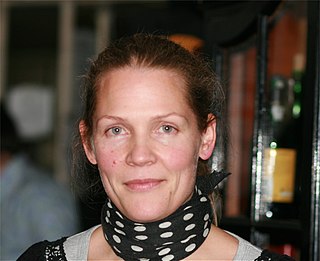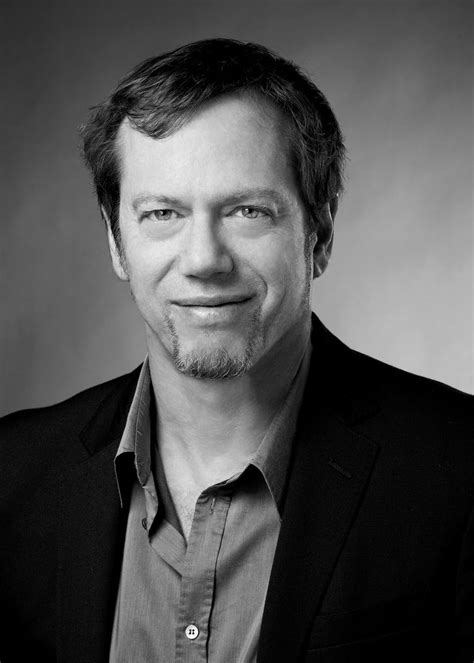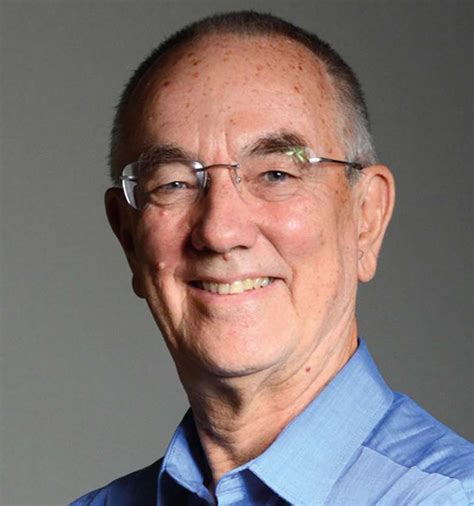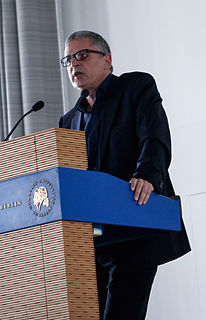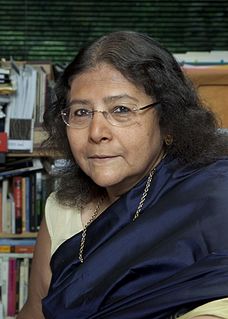Top 1200 Societies Quotes & Sayings - Page 17
Explore popular Societies quotes.
Last updated on December 11, 2024.
What we try to do as Elders is help those who are trying to change their own societies and communities for the better. We hope that by supporting the good work that is being done, especially at the grass roots, we can help to alleviate the suffering of human beings. That is our core mission - to draw attention to the impact that conflict, injustice and poverty have on ordinary people.
If I have the same plan to go into the streets, find random strangers, use art-historical referent from their - from the specific location, to use decorative patterns from this location, that's a rule. That's a set of patterns that you can apply to all societies. But what gives rise or what comes out of each experiment is so radically different.
Any contemporary political re-statement of liberal and socialist goals must include as central the idea of a society in which all men would become men of substantive reason, whose independent reasoning would have structural consequences for their societies, its history and thus for their own life fates.
Modern equalitarian societies whether democratic or authoritarian in their political forms, always base themselves on the claim that they are making life happier. Happiness thus becomes the chief political issue -- in a sense, the only political issue -- and for that reason it can never be treated as an issue at all.
A spontaneous act of generosity, performed with unselfish grace is an example of moral beauty, as are certain acts of courage; genuine modesty is a possible example, as is selfless love. Although moral beauty is a natural gift, it is nevertheless more likely to emerge and flourish in societies that appreciate and encourage it.
Investing in women at home and abroad strengthens families, uplifts our children, improves health, makes communities and countries more peaceful, and brightens our collective future. Where women have equality, security, and the opportunity to live, work, and prosper, their families and societies are better off.
The Catholic understanding has been that the death penalty has been become, like, outdated because in industrialized countries. We have other ways of protecting societies from dangerous people without killing them. And in fact, it's important to remember that much of the world has done away with the death penalty.
All societies are evil, sorrowful, inequitable; and so they will always be. So if you really want to help this world, what you will have to teach is how to live in it. And that no one can do who has not himself learned how to live in it in the joyful sorrow and sorrowful joy of the knowledge of life as it is.
Increasingly, the picture of our society as rendered in our media is illusionary and delusionary: disfigured, unreal, out of touch with reality, disconnected from the true context of our life. It is disfigured by celebrity, by celebrity worship, by gossip, by sensationalism, by denial of our societies
In matters of religion, I have considered that its free exercise is placed by the Constitution independent of the powers of the general government. I have therefore undertaken on no occasion to prescribe the religious exercises suited to it; but have left them as the Constitution found them, under the direction and discipline of State or Church authorities acknowledged by the several religious societies.
Feminism is a belief that although women and men are inherently of equal worth, most societies privilege men as a group. As a result, social movements are necessary to achieve political equality between women and men, with the understanding that gender always intersects with other social hierarchies.
there are only two basic ways of structuring the relations between the female and male halves of humanity. All societies are patterned on either a dominator model - in which human hierarchies are ultimately backed up by force or the threat of force - or a partnership model, with variations in between.
Transforming our societies and our economies is an agenda that requires the participation of all. Gender equality and the empowerment of women and girls are key. Including and empowering women and girls to develop and implement climate solutions is the right thing to do. It is also the smart thing to do.
More recently the US has more accurately been viewed as a militarist 'empire' that fights destructive wars and intervenes in a variety of societies, especially in the Middle East to retain control over oil reserves, and lends crucial support to Israel that not only oppresses the Palestinian people but threatens to convert the entire region into a war zone.
I maintain, despite the moment's evidence against the claim, that we are born and grow up with a fondness for each other, and we have genes for that. We can be talked out of it, for the genetic message is like a distant music, and some of us are hard-of-hearing. Societies are noisy affairs, drowning out the sound of ourselves and our connection.
It has been frequently remarked, that it seems to have been reserved to the people of this country to decide, by their conduct and example, the important question, whether societies of men are really capable or not, of establishing good government from reflection and choice, or whether they are forever destined to depend, for their political constitutions, on accident and force.
The mistake we make with many people - not just Russia - is that we believe we have the model, and there is a sort of a condescension in our dialogue with other societies, which was especially painful in several administrations to Russia. I think in Russia, the Yeltsin period is not considered a period of great achievement, but a period of corruption and humiliation.
The drama of AIDS threatens not just some nations or societies, but the whole of humanity. It knows no frontiers of geography, race, age or social condition(calling) for a supreme effort of international cooperation on the part of government, the world medical and scientific community and all those who exercise influence in developing a sense of more responsibility in society.
Democratic socialists like Sen. Bernie Sanders, I-Vt., and Rep.-elect Alexandria Ocasio-Cortez, D-N.Y., would have us believe that Big Government funded by extremely high taxes - in countries like France - can create fair and just societies with widespread prosperity, little if any poverty, and a happy and contended population.
Young people should be at the forefront of global change and innovation. Empowered, they can be key agents for development and peace. If, however, they are left on society's margins, all of us will be impoverished. Let us ensure that all young people have every opportunity to participate fully in the lives of their societies.
The Islamic tradition does show some areas of apparent incompatibility with the goals of women in the West, and Muslims have a long way to go in their attitudes towards women. But blaming the religion is again to express an ignorance both of the religion and of the historical struggle for equality of women in Muslim societies.
In progressive societies the concentration[of wealth] may reach a point where the strength of number in the many poor rivals the strength of ability in the few rich; then the unstable equilibrium generates a critical situation, which history has diversely met by legislation redistributing wealth or by revolution distributing poverty.
The great end of all human industry is the attainment of happiness. For this were arts invented, sciences cultivated, laws ordained, and societies modeled, by the most profound wisdom of patriots and legislators. Even the lonely savage, who lies exposed to the inclemency of the elements and the fury of wild beasts, forgets not, for a moment, this grand object of his being.
Societies would _not_ be better off if everyone were like Mr Spock, all rationality and no emotion. Instead, a balance - a teaming up of the internal rivals - is optimal for brains. ... Some balance of the emotional and rational systems is needed, and that balance may already be optimized by natural selection in human brains.
When I used to teach civil procedure as a law professor, I would begin the year by telling my students that “civil procedure is the etiquette of ritualized battle.” The phrase, which did not originate with me, captured the point that peaceful, developed societies resolve disputes by law rather than by force.
Technically speaking, since our complex societies are highly susceptible to interferences and accidents,they certainly offer ideal opportunities for a prompt disruption of normal activities. These disruptions can, with minimum expense, have considerably destructive consequences. Global terrorism is extreme both in its lack of realistic goals and in its cynical exploitation of the vulnerability of complex systems.
No society can sustain unlimited growth - none ever has. History demonstrates that expectations of infinite growth lead to collapse. Unfortunately, millennia of evidence also indicates that needed attempts to stabilize such societies run counter to the expectations of the populace and of interest groups. For that reason, such attempts at stabilization frequently fail.
What matters is abuse, and how it is anchored in a religion that denies women their rights as humans. What matters is that atrocities against women and children are carried out in Europe. What matters is that governments and societies must stop hiding behind a hollow pretense of tolerance so that they can recognize and deal with the problem.
Economies and societies invariably remake themselves in the wake of a crisis. It's a necessary component of rebound and recovery. Outmoded industries and tired consumption habits make way for new goods and services, new careers and forms of employment, and population realigns itself in the landscape. All these developments are connected to lifestyle changes.
The World Trade Organization, The World Bank, The International Monetary Fund and other financial institutions virtually write economic policy and parliamentary legislation. With a deadly combination of arrogance and ruthlessness, they take their sledgehammers to fragile, interdependent, historically complex societies and devastate them, all under the fluttering banner of 'reform'.
I certainly don't object to [writers] trying to imagine the lives of other societies, but you have to do it with a certain amount of humility and respect. If it were not for the ethnographic material that had been collected by missionaries and anthropologists and so forth, much of past Native American society would no longer be accessible. What I object to is making kitsch of things that are very serious.
Trump is the hyperventilating yellow canary in the coal mine reminding us all that social death is a looming threat. He is emblematic of a kind of hyper-masculinity that rules dead societies. He is the zombie with the blond wig holding a flamethrower behind his back. He is the perfect representation of the society of spectacle, with the perverse grin and the endless discourse of shock and humiliation.
Humans are remarkable: the first species in almost four billion years of life on earth that dominates the biosphere. This gives us the power, in principle, to build societies in which everyone flourishes. But it also creates great dangers because it is not clear that we really understand how to use our potentially devastating powers.
I am kind of a sucker for democracy, so I do think that what kinds of citizens we have in our societies are more foundational than what kinds of governments we have, and that the responsibility for self-government is ultimately with us. But we also have learned through a couple thousand years of democracy that democracies are only as good as people's capacity to reflect on those questions.
What interests me is the following paradox: of how, precisely in our liberal societies, where no one can even imagine a transcendental cause for which to die, we are allowed to adopt a hedonistic, utilitarian, or even more spiritually egotistical stance - like, the goal of my life is the realization of all my potential, fulfillment of my innermost desires, whatever you want.
In an increasingly connected world it is less likely that a few people 'manage' everyone else. The new environment requires a shift in the organization of both institutions and societies, one of flexible teams of teams that come together around whatever change opportunities exist and then reform around the next.
I think that America is an ideal place for the privileged homeless, who are used to different cultures. It's easiest and most accommodating because it is a country of exiles and immigrants and newcomers. There are no walls, in that sense. There is always the sense that traditions are being made as we speak. So you can slot yourself in. If you are living at a distance in society, this is one of the most congenial societies to live in.
When I used to teach civil procedure as a law professor, I would begin the year by telling my students that 'civil procedure is the etiquette of ritualized battle.' The phrase, which did not originate with me, captured the point that peaceful, developed societies resolve disputes by law rather than by force.
It is a quite remarkable fact that the great religions of the most civilized peoples are more deeply fraught with sadness than the simpler beliefs of earlier societies. This certainly does not mean that the current of pessimism is eventually to submerge the other, but it proves that it does not lose ground and that it does not seem destined to disappear.






